

Timeline of OH BRC Key Achievements
Dementia Theme researcher wins UK Biobank scientific impact award
Theme/Lead:
UK Biobank has announced University of Oxford’s Associate Professor Ludovica Griffanti as the inaugural winner of the 2025 Scientific Impact Award, recognising research that is transforming dementia care. Her work translating the UK Biobank brain-imaging approach into a 15-minute clinical method, in collaboration with teams across the University of Oxford and Oxford Health BRC, now supports clinicians in 11 NHS memory clinics to deliver faster, more accurate diagnoses and tailored treatments. This impressive achievement reflects a decade of collaborative innovation, scientific excellence, and commitment to improving patient outcomes. Congratulations to Ludovica and all involved for driving meaningful, data-driven advances that are shaping the future of brain health.
Read more on UK Biobank web site

Better Sleep Theme Post Doc awarded an ERC consolidator grant
Theme/Lead:
OH BRC Better Sleep Theme Post Doc Dr. Rebecca Richmond, on secondment from Bristol University has been awarded The European Research Council (ERC) Consolidator Grant. 349 mid-career researchers were selected to receive this year’s Grants with funding from the EU’s Horizon Europe programme, these grants will support cutting-edge research at universities and research centres in 25 EU Member States and associated countries. The grant will enable Rebecca to continue Sleep research in collaboration with David Ray until 2030. Her research aims to uncover how sleep and circadian misalignment influence ageing and disease, using biomarkers and advanced analytics. Congratulations Rebecca!

OH BRC researchers named among Clarivate's Highly Cited Researchers
Theme/Lead:
Eight leading academics affiliated with OH BRC have been recognised in Clarivate’s prestigious Highly Cited Researchers 2025 list, which identifies the world’s most influential scientists whose work ranks in the top 1% by citations. This recognition reflects the global impact of their research in mental health, neuroscience, and public health.
Professor Masud Husain, newly listed this year, commented:
“I’m very pleased to be included on the Highly Cited Researchers list. It’s recognition that shows our work is having an impact across several fields: neurology, psychiatry and neuroscience. It highlights the importance of research that deepens fundamental understanding of brain mechanisms and ultimately improves care for people.”

Data Science researcher wins Royal College of Psychiatrists Award
Theme/Lead: Data Science
Dr Rob McCutcheon OH BRC Data Science Theme researcher and Associate Professor at the University of Oxford has won Mid/Senior Career Academic Researcher of the Year at the Royal College of Psychiatry Awards for “the substantial impact” of his research, including through his work on digital prescribing, clinical service design, and mentorship.
Dr McCutcheon’s research investigates both how to use existing treatments more effectively, and how to develop new treatments for people with psychotic disorders like schizophrenia.
This involves testing treatments in both humans and animal models of the illness. In his clinical work he runs the TUNE-UP clinic.

COVID-19 Inquiry: Oxford Research Shapes National Mental Health Evidence
Theme/Lead: Mental Health in Development
Professor Cathy Creswell, Mental Health in Development Co- Theme Lead, co-authored a major evidence report for the UK COVID-19 Inquiry, spotlighting the pandemic’s impact on young people’s mental health. The report draws heavily on Oxford-led research and was published alongside oral evidence given by co-author Dr Tamsin Newlove-Delgado.
The expert report is available here

Better Sleep co- Theme Lead publishes The Oxford Handbook of Sleep and Sleep Disorders
Theme/Lead:
Congratulations to our co-Theme Lead for Better Sleep Professor Colin Espie whose book The Oxford Handbook of Sleep and Sleep Disorders has been published. The book is a comprehensive guide to sleep science and clinical practice. It explores the fundamentals of sleep and circadian rhythms, their vital roles in health and wellbeing, and the societal factors influencing sleep. The handbook also examines sleep disorders, including assessment, classification, and treatment across the lifespan. With 46 expert-authored chapters, it serves as an authoritative resource for clinicians and researchers seeking contemporary insights into sleep medicine and research.

First OH BRC Neurodiversity Conference held in Oxford
Theme/Lead:
In September, Oxford’s first Neurodiversity Conference took place bringing together clinicians, researchers, local organisations, members of the public and the neurodivergent community to discuss current and future research and areas for potential collaboration.
The event included talks and panel discussions on topics including adapting mental health interventions for neurodivergent individuals and mechanistic approaches to mental health and neurodiversity.
Speakers at the event included researchers and clinicians from the University of Oxford and charity partners Autism Champions.

Preventing Multiple Morbidities researcher awarded NIHR partnership fellowship
Theme/Lead: Preventing Multiple Morbidities
Congratulations to Dr Megan Kirk Chang, OH BRC Preventing Multiple Morbidities Theme researcher, who has been awarded a Zinc NIHR Innovation Fellowship.
The Zinc NIHR Innovation Fellowship is a partnership between the NIHR and Zinc VC, an industry partner which designs and delivers programmes that unlock the potential of science and research to improve healthcare.
The Fellowship will allow Dr Kirk Chang to further research into the potential of ketogenic dietary interventions to improve both mental and metabolic health outcomes through digital solutions.

New research hub to study diet policies that optimise health benefits of Net Zero
Theme/Lead: Preventing Multiple Morbidities
The THRIVING Food Futures research hub, led by Prof of Population Health Peter Scarborough and supported by OH BRC launched in April 2025. This is a five-year programme of research funded by UK Research and Innovation and the NIHR, and includes a consortium of researchers from Oxford, Cambridge, Strathclyde, Warwick, Queen Mary’s University of London, and City St George’s University London.
THRIVING Food Futures is a research hub working with UK policymakers to co-design and evaluate food policies that reduce greenhouse gas emissions, improve public health, and address health inequalities. It develops innovative tools and trials interventions in real-world settings, guided by citizen input to ensure relevance and effectiveness.
You can find out more about THRIVING Food Futures here.
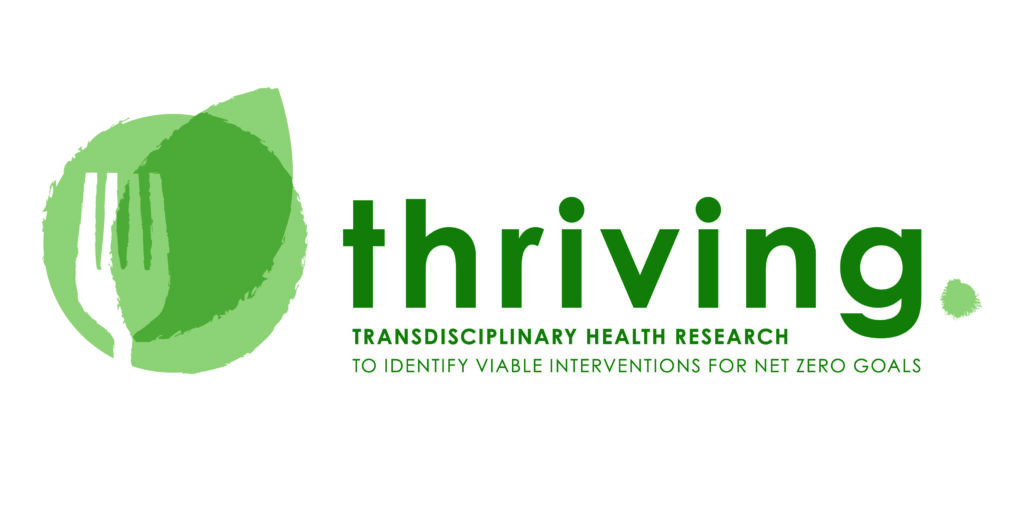
International Spotlight: OH BRC researcher acknowledged at Alzheimer’s conference in Toronto
Theme/Lead: Dementia
Congratulations to Dr Emily Bowman, Postdoctoral Researcher in the Department of Psychiatry and OH BRC researcher in our Data Science Theme.
Emily has been awarded “Publication of the Year” in Perioperative Cognition and Delirium at the Alzheimer’s Association International Conference in Toronto. Her paper, published in Age and Ageing, explores the impact of perioperative cognitive training on postoperative delirium in older adults undergoing surgery, contributing vital insights to improving outcomes in this vulnerable population.
Read her paper online: Age and Ageing

Data Science Theme researcher Dr Howard Ryland recognised with NIHR award
Theme/Lead: Data Science
Congratulations to our Data Science Theme researcher Dr Howard Ryland who has received the NIHR Senior Clinical and Practitioner Research Award (SCPRA).
The SCPRA is a flexible award which provides funding for protected time within a senior clinician or and senior practitioner role, covering salary and a contribution towards training and development.
This award will support Dr Ryland to co-lead a James Lind Alliance Priority Setting Partnership for Adult Secure Inpatient and Community Forensic Mental Health Services and to work with the Forensic Mental Health Patient and Public Advisory Group.

Book published - leading textbook on child and adolescent psychiatry
Theme/Lead: Mental Health in Development
Our Mental Health in Development Co-Theme Lead Professor Cathy Creswell and fellow authors published a book. Rutter’s Child and Adolescent Psychiatry and Psychology, (7th Edition) offers a global, interdisciplinary update on youth mental health. It includes new chapters on COVID-19, digital technology, diversity, and care in low-resource settings.
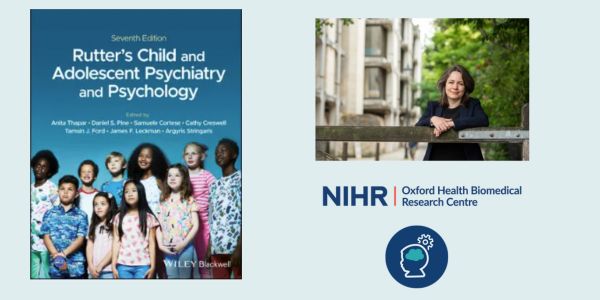
Psychopharmacology Spotlight: Max Taquet Wins BAP Clinical Junior Award
Theme/Lead:
Congratulations to Oxford Health Biomedical Research Centre (OH BRC) researcher and University of Oxford’s Department of Psychiatry Associate Professor Max Taquet who received the 2025 British Association for Psychopharmacology (BAP) Clinical Junior Award at their Summer Meeting in Manchester for his research using electronic health records to advance psychopharmacology. He said, “I am truly honoured… It is a privilege to be able to pursue research in psychopharmacology here.”

Together for Neurodiversity: A Community-Driven Event During World Autism Acceptance Month
Theme/Lead:
During World Autism Acceptance Month 2025, the Together for Neurodiversity event at Oxford Westgate Library brought together professionals, parents, researchers, and local organisations to support the neurodivergent community. Key speakers included experts from our BRC and local initiatives, sharing insights on mental health, education, and community support. The event fostered new collaborations and partnerships, laying the foundation for future work to champion neurodiversity across Oxfordshire and beyond.
The Together for Neurodiversity event was co-organized by Andreia Costa, Project Manager for Training and Career Development at Oxford Health BRC and Neurodiversity Advocate, Leandra Hamblin, founder of the blog SEntipede, and Donna Jewell, Head of Community at the Oxford Hub

Depression Therapeutics Theme - European Psychiatric Association (EPA) 2025 Research Prize win
Theme/Lead:
Dr Riccardo De Giorgi has received the European Psychiatric Association (EPA) 2025 Research Prize in Category 3 for his study on semaglutide use in type 2 diabetes. Published in Lancet eClinicalMedicine, the research found that semaglutide users had a lower risk of cognitive impairment and nicotine misuse. These findings highlight the potential of GLP-1-based treatments for cognitive and mental health disorders, including dementia and addiction.
Commenting on the award, Dr De Giorgi said:
“I was delighted to receive this generous recognition from the EPA, which gave great visibility to our work. The study was a product of close collaboration across multiple NIHR Oxford Health BRC themes and departments within the University of Oxford. I feel fortunate to have been part of such a talented team and have learnt a great deal from every member.”

OH BRC mid-term review with International Advisory Board
Theme/Lead:
We held a successful Mid-Term Review with our International Advisory Board (IAB) in March. The IAB, composed of senior international experts, plays a crucial role in guiding the scientific direction of our BRC and fosters collaborations with leading global research institutions. The event evaluated progress, identified challenges, and set priorities for the second half of the funding cycle. It showcased the work from our research Themes and core activities including Health Economics, Academic Career Development, and EDI.

Prestigious award for OH BRC Researcher
Theme/Lead:
Dr. Maxime Taquet, NIHR Clinical Lecturer at the Department of Psychiatry won the prestigious 2024 Sir Jules Thorn Award for Biomedical Research for his project, “IMPACT-SMI,” which aims to make severe mental illness more predictable and manageable by measuring symptom fluctuations over time.
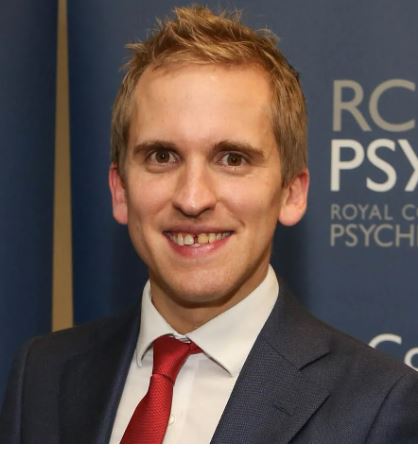
Psychological Treatments Theme - Mohammed bin Rashid Al Maktoum Knowledge Award win for OH BRC Theme Lead
Theme/Lead:
Our Co-Theme Lead for Psychological Treatments Professor Anke Ehlers has been recognised at the Mohammed bin Rashid Al Maktoum Knowledge Award 2024 awards ceremony in Dubai for her pioneering work on the understanding and psychological treatment of anxiety disorder.
Together with Prof David Clark, NHS England’s Clinical and Informatics Advisor for NHS Talking Therapies for Anxiety and Depression, the award recognises their joint work in creating NICE recommended first line treatments for social anxiety disorder, panic disorder and PTSD, along with more efficient digital versions


Commitment to supporting the academic careers of Nurses, Midwives and Allied Health Professionals (NMAHPs)
Theme/Lead:
Building on the successful NIHR Connect and Grow Networking and Collaboration Event held on 10 January 2024 , a consortium of Biomedical Research Centre partners successfully applied for funding from the NIHR 2024 Infrastructure and Schools Pre-Application Support Fund.
Sheffield Health and Social Care NHS FT, Berkshire Healthcare NHS FT/ University of Reading and Oxford Brookes University have all received funding for dedicated programmes of support and mentorship to allow NMAHPs to prepare, and submit, NIHR Fellowships.

Molecular Targets Theme receives significant grant to study channels in bipolar disorder
Theme/Lead:
The Molecular Targets Theme received a $4.5M grant over three years from new charity BD2 to study calcium channels and in particular channels in bipolar disorder.
One of the Principal Investigator’s (PIs) leading this work is University of Oxford’s Alzheimer’s Research UK Senior Research Fellow, Becky Carlyle. The University of Oxford’s Department of Psychiatry Senior Post Doctoral Researcher Arne Mould will be the project manager, both colleagues are supported by our BRC Molecular Targets Theme.
BD2 brings together researchers, clinicians, philanthropists, and people with lived experience to study and treat bipolar disorder in a new way.
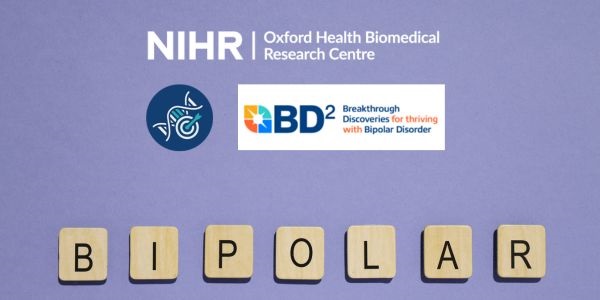
Depression Therapeutics Theme - BReal (Building stress resilience in early adolescents' lives)
Theme/Lead:
One of the Wellcome Centre for Integrative Neuroimaging (WIN) longest and largest public engagement projects, “BReal” (Building stress resilience in early adolescents’ lives) led by Univeristy of Oxford Professor Jacinta O’Shea, released a three-lesson pack of materials on stress resilience for year 7-9 students, available as free downloads from the project website. Slide decks, lesson plans, worksheets, teacher guidance etc are all included.
The materials are designed for use in PSHE (personal, social, health and economic) classes and have been accredited by the PSHE Association’s Quality Mark scheme.

Preventing Multiple Morbidities Theme awarded MRC grant for new study
Theme/Lead:
This BRC funded project started in October 2023 supported the PMM Theme to conduct Patient and Public Involvement (PPI) to evaluate public support for this intervention approach and co-design intervention resources.
Following 2 small scale trials the research team applied and were awarded a Medical Research Council (MRC) programme grant of £1.5 million to formally evaluate ‘High in’ nutrient warning labels on packaged foods (supermarkets) and in the out-of-home food sector (restaurants) settings using large-scale real world trials. The MRC programme funding will also fund colleagues at Oxford to lead on epidemiological modelling of their population level health impacts if adopted as a policy approach by national government
The University of London were lead applicant with Oxford Health BRC colleagues as co-leads.

Molecular Targets Theme - New study reveals long-term cognitive and psychiatric effects of COVID-19
Theme/Lead:
A new study published in Lancet Psychiatry has revealed that many people who were hospitalised with COVID-19 continue to have cognitive and psychiatric problems even two to three years post-infection.
Conducted by researchers in the OH BRC Molecular Targets Theme, the research highlights the persistent and significant nature of these symptoms as well as the emergence of new symptoms years after COVID-19 was first present.

Depression Therapeutics Theme - Royal College of Psychiatrist/British Association of Psychopharmacology Poster Prize win
Theme/Lead:
One of the 2024 Royal College of Psychiatrist/British Association of Psychopharmacology Poster Prizes was awarded to Depression Therapeutics Theme colleague Verena Sarrazin for her work on cognitive mechanisms of transcranial magnetic stimulation treatment for depression. The project has shown that brain stimulation treatment can help patients to focus more on positive stimuli, and that this change in emotional processing predicts who will go on to respond to the treatment.
“I attended the BAP meeting for the first time this year. The conference was very well organised, with a large variety of talks. I really enjoyed the combination of excellent science and a very friendly, supportive atmosphere. I am looking forward to attending the meeting again in the future!”

OH BRC Dementia Theme complete a study on Blood tests to detect Alzheimer’s disease
Theme/Lead:
Researchers in the Dementia theme completed a study to measure the proteins associated with Alzheimer’s disease in the blood. They found that the levels of these proteins were related to the degree of cognitive impairment, measured on a new online cognitive testing platform called OCTAL which they have developed.
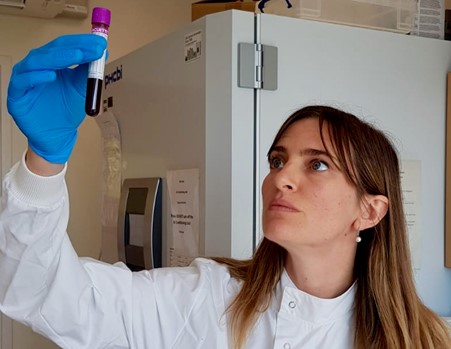
Major new study by Molecular Targets Theme demonstrates that new shingles vaccine could reduce risk of dementia
Theme/Lead:
A major new study published in Nature Medicine shows the new recombinant shingles vaccine ‘Shingrix’ is associated with a reduced risk of dementia compared to an earlier shingles vaccine.
The study of more than 200,000 people by OH BRC supported researchers found at least a 17% reduction in dementia diagnoses in the six years after the new recombinant shingles vaccination, equating to 164 or more additional days lived without dementia.

Preventing Multiple Morbidities Theme - The DIME study - is a ketogenic diet an effective treatment for treatment-resistant depression?
Theme/Lead:
The DIME study is a placebo-controlled, randomised, proof-of-concept trial to test whether a ketogenic diet is an effective treatment for treatment-resistant depression
The OH BRC Preventing Multi Morbidities Theme have been working on the Dime study, offering a six-week programme of weekly dietitian counselling and provision of ketogenic meals, compared with an intervention involving similar dietetic contact time that promotes one portion of vegetable extra per day and switching to vegetable fat (placebo).
Participants to the study were recruited using social media from across the UK from February 2024. Full recruitment to the study randomising 88 participants has been achieved.
To date, 55 participants (63%) have completed their diet, and 50 participants (57%) have completed their primary outcome assessment.
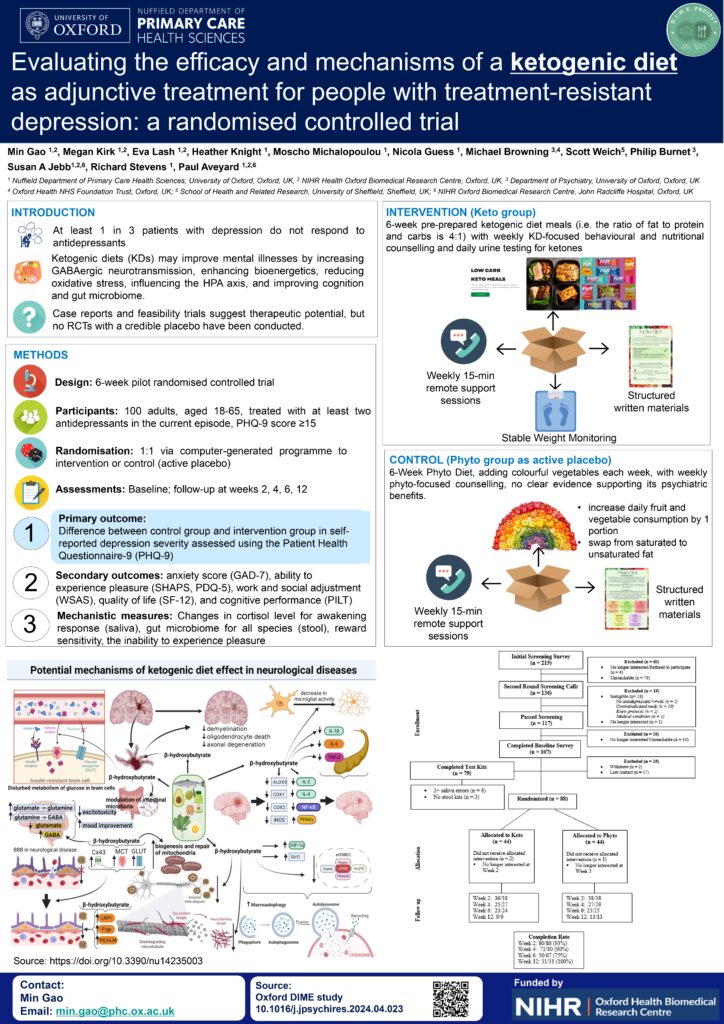

Depressions Therapuetics Theme completes recrutiment to PAX-D Study
Theme/Lead:
PAX-D, a major trial of a new intervention for depression led by University of Oxford’s Department of Psychiatry Professor Michael Browning, completed recruitment. Originally launched within Oxford Health NHS Foundation Trust (OHFT), eight other sites around the UK collaborated on this study.
This trial compared the effects of the medication pramipexole with a placebo when added to current antidepressant medication. There is some evidence that pramipexole, a medicine already commonly used in Parkinson ’s disease, may be an effective treatment for people with treatment resistant depression. The analysis will look at effectiveness in the short-term (after 12 weeks treatment) and in the longer-term (48 weeks). OH BRC researchers will also assess the side effects of pramipexole and explore patients’ experience of taking it.


Brain Technologies Theme supports world’s first epilepsy device fitted into boy’s skull
Theme/Lead:
In a ground breaking medical achievement, a young boy has become the first person to receive a revolutionary epilepsy device, significantly reducing seizure frequency and severity. The study partnership responsible for developing the device involved University of Oxford researchers from the OH BRC’s Brain Technologies Theme, Great Ormond Street Hospital, University College London and King’s College Hospital.

Depression Therapeutics Theme Away Day
Theme/Lead:
The Depression Therapeutics Theme held an engaging and informative away day event at the Said Business School with a packed agenda and presentations from colleagues across the Theme detailing Theme achievements from 2023-24.
Treating depression in young people was a focus during the morning session. Amongst the presentations the AdvOx Young Persons Advisory Group and the The Anxiety and Depression in Young People (AnDY) Research Clinic offered insights into the work being carried out with young people. The SOMA study (effects of social movement on mood and social/emotional functioning in young people) was presented by Brennan Delattre. Re purposing existing medications for the treatment of mood disorders, and the link between gut and brain health was also discussed.
Chair Professor Mike Browning led discussion on using computational modelling to improve the specificity and prediction of experimental medicine models and after lunch chair and Theme Lead and co-chair Catherine Harmer presented on developing an experimental medicine model for fast-acting antidepressants.
PPI activity across the Theme was presented and a panel discussion focusing on next steps and opportunities for the Theme moving forward closed the interesting and informative day.


Mental Health in Development Theme announce opening of AnDY Clinic Oxford
Theme/Lead:
An integrated research and clinical treatment centre has been launched in Oxford. The Anxiety and Depression in Young People (AnDY) Research Clinic – Oxford in collaboration with Oxford Health NHS Foundation Trust Child and Adolescent Mental Health Services (CAMHS) partners and builds upon the experiences of the successful AnDY Research Clinic – Reading (University of Reading/Berkshire Healthcare NHS Foundation Trust).
The clinic will provide high quality assessments and treatment for patients, who will have improved access to research opportunities. This will in turn enable the development of better assessment and treatment approaches that can be rapidly implemented to provide better care for patients. It will also enable us to create a blueprint for further scaling through a national network of AnDY clinics.

Brain Technologies Theme - New optically pumped magnetometers (OPM) came to Oxford
Theme/Lead:
The Oxford Centre for Human Brain Activity, led by Prof. Mark Woolrich, was granted a cutting-edge piece of neuroimaging equipment – the Optically Pumped Magnetometers (OPMs), representing a substantial advancement in research infrastructure for the OH BRC Brain Technologies Theme. This equipment will improve the Theme’s capacity to conduct neuroimaging research across different modalities.

Depression Therapeutics and Brain Technologies Themes host 1st Transcranial Ultrasound Stimulation Workshop in Plymouth
Theme/Lead:
The University of Oxford’s Experimental Psychology Associate Professor Miriam Klein-Flugge, along with Lilian Weber and Johannes Algermissen and others from the DT Theme, hosted a workshop in Plymouth on transcranial ultrasound stimulation techniques. The aim was to cover the fundamentals and applications of these techniques, and showcase their promising therapeutic potential for a range of brain disorders.
Transcranial ultrasound stimulation is a brain stimulation technique at an early stage of clinical translation. It uses a transducer (like a loudspeaker) to deliver an acoustic pressure wave to the brain. Our researchers (Klein-Flugge) have shown that TUS can reach deep areas in the brain that other stimulation techniques cannot.
The workshop was a huge success, attracting people from across Europe and Asia, and was over-subscribed so will be running again next year.

NIHR Connect & Grow, Networking & Collaboration Event – Sponsored by NIHR Oxford Health BRC
Theme/Lead:
On Wednesday 10 January 2024, the NIHR Oxford Health Biomedical Research Centre (OH BRC) hosted a successful event at the Voco Oxford Spires, to discuss barriers and enablers for academic career progression for Nurses, Midwives and Allied Health Professionals (NMAHPs) and the priorities to address them.

Kick off Meeting and Social Event for Depression Therapeutics Patient and Public Involvement Group
Theme/Lead:
The Depression Therapeutics theme have formed a group of public members – Jane, Roger, Mike and Vanessa – who are interested in experimental depression research, to lead Patient and Public Involvement (PPI) activities within the theme. The idea is that they will become embedded in the theme, getting to know the different research groups, and collaborating and offering input from an early stage of research. In January, they met with Amy Gillespie – PPI lead for the theme – for an introduction to Depression Therapeutics, discussing the methodologies used and the ways they could get involved. They then attended a social event with researchers, to talk and share their motivations for getting involved and start to build connections.

Does watching an advertisement of an alcohol-free drink influence the purchase of alcoholic versions of the same drink?
Theme/Lead:
The Oxford Health Biomedical Research (OH BRC) Population Health subtheme have designed a randomised controlled trial to assess whether watching an advertisement of an alcohol-free drink influences the purchase of alcoholic versions of the same drink. Currently, alcohol free advertising of brands is allowed in some places where alcohol advertising is not. This study uses an experimental online supermarket and is due to launch in early 2024. This project was prioritised by the subtheme’s PPI co-design panel.

The Anxiety and Depression in Young People (AnDY) Research Clinic in Oxford to open in 2024
Theme/Lead:
The Anxiety and Depression in Young People (AnDY) Research Clinic in Oxford now has 14 members of staff in post, led by Dr Ray Percy (Clinic Director), including clinicians from Oxford Health CAMHS and clinical researchers from the TOPIC Research Group at the University. A number of members of the team were excited to meet during December at the University of Oxford to get to know each other, see their new office space in New Radcliffe House, and to plan for clinic launch in early 2024.

Can a Ketogenic diet be an effective treatment for patients with treatment-resistant depression?
Theme/Lead:
The Mental Illness subtheme have designed a proof-of-concept trial, the DIME to assess the effectiveness of a ketogenic diet as a treatment for treatment-resistant depression. The team have obtained ethical approval and developed study infrastructure. Collaborating with the McPin Foundation, a PPI panel contributed lived experience to co-design recruitment materials, engagement strategies, and strategies to promote adherence. The pilot phase showed that online recruitment was feasible and dietary treatment was well-received and helped us refine workflows for the main trial. The trial will launch in January 2024.

Strengthening relationships with Oxfordshire’s older adults
Theme/Lead:
It has been a great pleasure to introduce some of Oxfordshire’s older adults to health research. With members of the Leys CDI Clockhouse Project, we have enjoyed the health benefits of being together and learning new things at the Harcourt Arboretum and Ashmolean Museum; several Clockhouse Project members then got involved in shaping our research. We have also spread the word about brain health in Wallingford’s dementia-friendly community; in care homes, at leisure groups and at public events. We are very grateful to many of Wallingford’s carers who have involved themselves in our research, especially those who sit on the PPI Advisory Group for the Brain Health Clinic.

Developments for OH BRC Data Science Theme
Theme/Lead:
During November 2023, Angelini Pharma (the pharmaceutical division of Angelini Industries) visited the Department of Psychiatry. Their Chief Scientific Officer delivered a presentation on the profile of the company and future strategic directions. Professors Seena Fazel, Philip McGuire and Chief Executive Officer of Akrivia Health, Mike Denis provided insight into their Oxford Health Biomedical Research Centre (OH BRC)related research.
There is much excitement for more collaboration in 2024 and beyond.
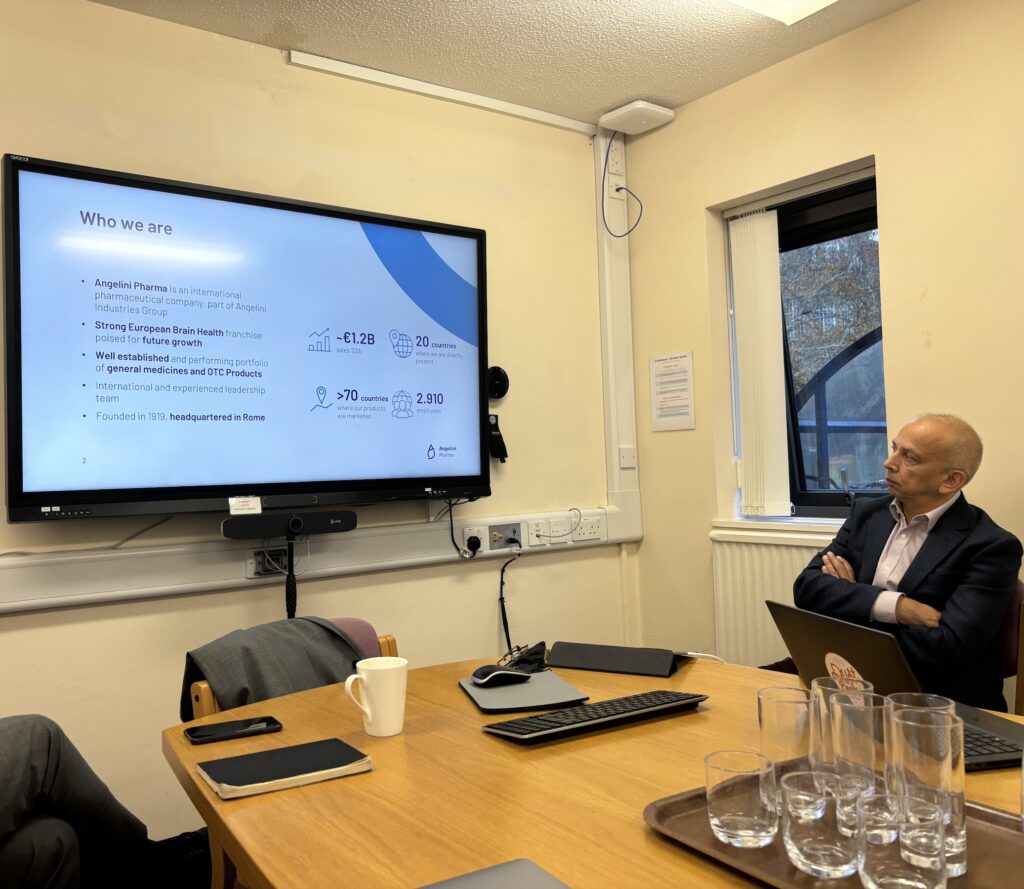
Virtual Reality technology to treat agoraphobia approved for use in the NHS
Theme/Lead:
For the first time a virtual reality treatment (VR) has been recommended for use in NHS mental health services. The automated VR treatment enables patients who are largely housebound with agoraphobia to practise re-entering everyday situations. NICE early value assessment recommends gameChange VR Therapy developed by Professor Freeman’s team for use in the NHS.

Immersive technologies hold promise for the treatment of severe mental health problems.
Theme/Lead:
THRIVE RCT published in Lancet Psychiatry found that both automated VR cognitive therapy and VR mental relaxation lead to large reductions in persecutory delusions. Persecutory delusions are a major psychiatric problem that often do not respond sufficiently to standard pharmacological or psychological treatments. A new brief automated virtual reality (VR) cognitive treatment that has the potential to be used easily in clinical services was developed. The aim was to compare VR cognitive therapy with an alternative VR therapy (mental relaxation), with an emphasis on understanding potential mechanisms of action.

Blood clots during COVID-19 may be a cause of ongoing cognitive problems
Theme/Lead:
High levels of two proteins at the time of COVID-19 have been found in patients who later experienced cognitive problems, including ‘brain fog’. The findings give a major clue as to one cause of their symptoms: blood clots. In a paper published in Nature Medicine, they identified two separate profiles of biomarkers.

SleepWell study brings positive results for young people at high risk of psychosis
Theme/Lead:
The SLEEPWELL feasibility RCT published in Lancet Psychiatry showed that a targeted sleep intervention led to larger improvement in sleep disturbance in young people at ultra-high risk for psychosis than usual care. In the first trial of its kind at two NHS trusts, young mental health patients aged 14-25 identified as at high risk of psychosis and suffering from sleep problems were offered either targeted psychological therapy called “SleepWell” in addition to usual care (1) or usual care alone. Based on the positive results, the same team of Oxford researchers will now lead a wider trial starting in 2024 to confirm the clinical benefits of this approach and prepare for roll out into NHS services.

Strengthening relationships with Oxfordshire’s older adults
Theme/Lead:
Dr Sana Suri and colleagues developed a novel dementia risk score, recently published in the BMJ – Mental Health journal. The score, developed using data from the UK, significantly outperformed existing tools in identifying future cases of dementia. Crucially, the score draws on several modifiable factors including diabetes, depression, and high blood pressure, highlighting the importance of promoting lifestyle modifications to reduce risk. While future developments are required to take the score to large-scale clinical use, it represents a key step towards a risk assessment tool tailored to the UK.
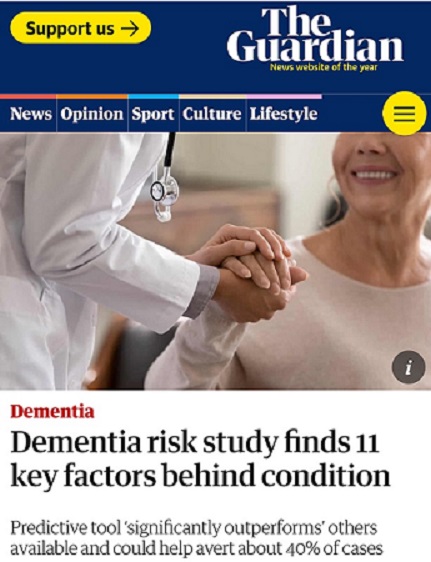
Transforming Research Practices: Inclusive workshops unveil positive changes
Theme/Lead:
The Public Engagement Team at the Wellcome Centre for Integrative Neuroimaging (WIN), part of the Oxford Health Biomedical Research Centre (OH BRC) Brain Technologies Theme, organised three inclusive research workshops collaborating with individuals from underrepresented backgrounds to discuss how their research communications and processes can be more inclusive.
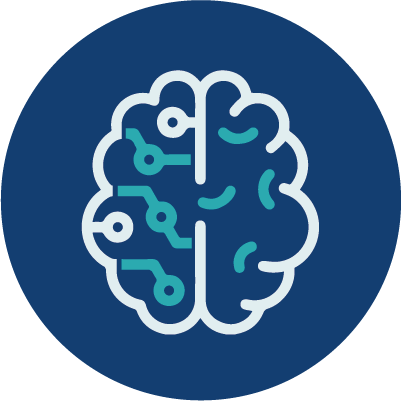

Internet-delivered cognitive therapy for PTSD is shown to be highly effective
Theme/Lead:
A study (STOP-PTSD) which aimed to investigate whether a novel internet-delivered cognitive therapy for Post Traumatic Stress Disorder (PTSD) was published in Lancet Psychiatry (A. Ehlers et al.) The study showed that internet-delivered cognitive therapy for PTSD is highly effective and leads to better outcomes than a comprehensive internet-delivered CBT programme focusing on coping strategies.

Exploring the consequences and economic costs of childhood anxiety
Theme/Lead: Mental Health in Development
Professor Cathy Creswell, OH BRC Mental Health in Development Theme Lead co-authored a paper exploring the impact of childhood anxiety. The research was conducted as part of the iCATS-i2i research project, funded by the National Institute for Health and Care Research NIHR). iCATS-i2i aims to develop and evaluate a new way of identifying children with anxiety problems who may benefit from effective support through researcher contact with primary schools.

NICE early value assessment recommends 4 digitally enabled therapies for use in the NHS developed by BRC researchers
Theme/Lead:
The National Institute for Health and Care Excellence (NICE) early value assessment recommends 4 digitally enabled therapies developed by Oxford Health Biomedical Research Centre (OH BRC) researchers for use in the NHS: cognitive therapy for social anxiety disorder for adults (iCT-SAD) and adolescents (OSCA), cognitive therapy for PTSD (iCT-PTSD) (Professors Clark and Ehlers’ team) and Online Support and Intervention (OSI) for child anxiety (Professor Creswell’s team).

£35.4m to transform mental and brain health care across the UK – and the world
Theme/Lead:
Innovative treatments and transformative therapies in brain health are on the horizon thanks to a £35.4 million award to the NIHR Oxford Health Biomedical Research Centre. The award is part of a package of funding from the National Institute for Health and Care Research (NIHR) for Biomedical Research Centres (BRC). The Oxford Health BRC is successful in securing funding for 11 themes of research.

2022 Therapist-assisted internet-delivered cognitive therapy for social anxiety disorder shown to be highly efficacious in adults and adolescents
Theme/Lead: Precision Psychological Therapies
Clark’s team who developed the treatment with support from the Wellcome Trust and Oxford Health BRC published three randomised controlled trials showing that the treatment leads to very large improvement and achieves the same outcomes as face-to-face cognitive therapy, which is recommended by NICE as the first-line intervention for social anxiety disorder. The clinical benefit per hour of therapist time was twice as large for the internet-delivered treatment compared to face-to-face therapy.

Breakthrough success in provision of automated psychological therapy using virtual reality
Theme/Lead:
Results from the gameChange study published in The Lancet Psychiatry have shown that psychological therapy can be automated in virtual reality. The study, led by Professor Daniel Freeman, is the largest ever clinical trial of VR for mental health. With the user guided by a virtual coach there is no need for a real life therapist, meaning treatment can reach many more patients.

New funding for Oxford Health Clinical Research Facility
Theme/Lead:
The Oxford Health Clinical Research Facility (OH CRF) has been awarded more than £4 million over the next five years by the National Institute for Health Research (NIHR). The OH CRF is one of 28 facilities across England to benefit from nearly £161 million that has been awarded to expand early phase clinical research delivery in NHS hospitals.

Diversity in Research Group
Theme/Lead:
The Oxford and Oxford Health BRCs Diversity in Research Group met in person for the first time to celebrate the important contributions from the group to health research throughout the pandemic. The event provided an opportunity for members to meet each other, staff and to celebrate the group’s contributions.

Preliminary findings show ‘count me in’ is making research more inclusive at Oxford Health
Theme/Lead:
‘Count me in’ was launched in August 2021 after Oxford Health BRC studies showed that asking clinical staff to collect research contact consent was resulting in a low uptake from patients, and that both staff and patients favoured an approach that allowed all patients to be contacted about relevant research unless they had opted out. Preliminary findings published in a letter published in the journal Evidence Based Mental Health showed the project is having a positive effect on research recruitment.

Oxfordshire young people involved in childline research project
Theme/Lead: Ilina Singh
Research conducted by the Neuroscience, Ethics and Society group, NeurOX Young People’s Advisory Group, Oxford Health BRC and the NSPCC, has looked at how Childline’s message boards help support young people. The research found that using the Childline message boards could reduce young people’s emotional distress and increase their willingness to seek outside help.

Over a third of COVID patients diagnosed with one long covid symptom
Theme/Lead: Paul Harrison
An Oxford Health BRC study showed that 37% of people had at least one long-COVID symptom diagnosed in the 3-6 month period after COVID-19 infection, with the commonest symptoms being breathing problems, abdominal symptoms, fatigue, pain and anxiety/depression. The Study investigated long-COVID in over 270,000 people recovering from COVID-19 infection, using data from the US-based TriNetX electronic health record network

AIMday launches new experimental medicine industry hub
Theme/Lead: Cath Harmer
Researchers at Oxford Health BRC created a new hub to foster collaboration with industry in the field of experimental medicine, helping to accelerate the rate at which new treatments can begin to benefit patients. The Experimental Medicine Industry Partnership (EMIP) was launched at an online Academic Industry Meeting Day (AIMday) in July 2021. The event was captured in a series of mini blogs authored by early career researchers who attended the event.

Mentoring young scientists at Oxford Health BRC
Theme/Lead: Cath Harmer
Oxford Health BRC took part in the In2Science programme. This is a scheme that gives young people from a range of backgrounds the opportunity to spend time with and learn from people working in research and to find out more about a career in science. Dr Jessica Scaife, a postdoctoral researcher at the Oxford Health BRC, mentored 3 young people as part of the programme.

Abu Dhabi - Oxford Psychiatry Collaboration
Theme/Lead:
This Abu Dhabi – Oxford Psychiatry partnership has been established to create a cross-regional collaboration model for translational research and digital innovation in mental health. The partnership has been formalised between four signatories: Abu Dhabi Health Services Company (SEHA), Khalifa University of Science and Technology (KU), Akrivia Health and the University of Oxford.

Professor Catherine Harmer on BBC Radio 4 podcast
Theme/Lead:
Professor Catherine Harmer appeared on the BBC Radio 4 podcast ‘Made of Stronger Stuff’ challenging misconceptions about depression and providing up-to-date information on what serotonin does in the brain.

Involving young people with research
Theme/Lead: Ilina Singh
Throughout the pandemic the Oxford Health BRC PPI team have focussed on involving young people with our research, ensuring that their views and priorities have continued to be recognised. Working with the NEUROSEC/NeurOX Young People’s Advisory Group (YPAG) of more than 30 young people aged 14-18, there has been particular emphasis on digital approaches which has helped make involvement opportunities more inclusive.
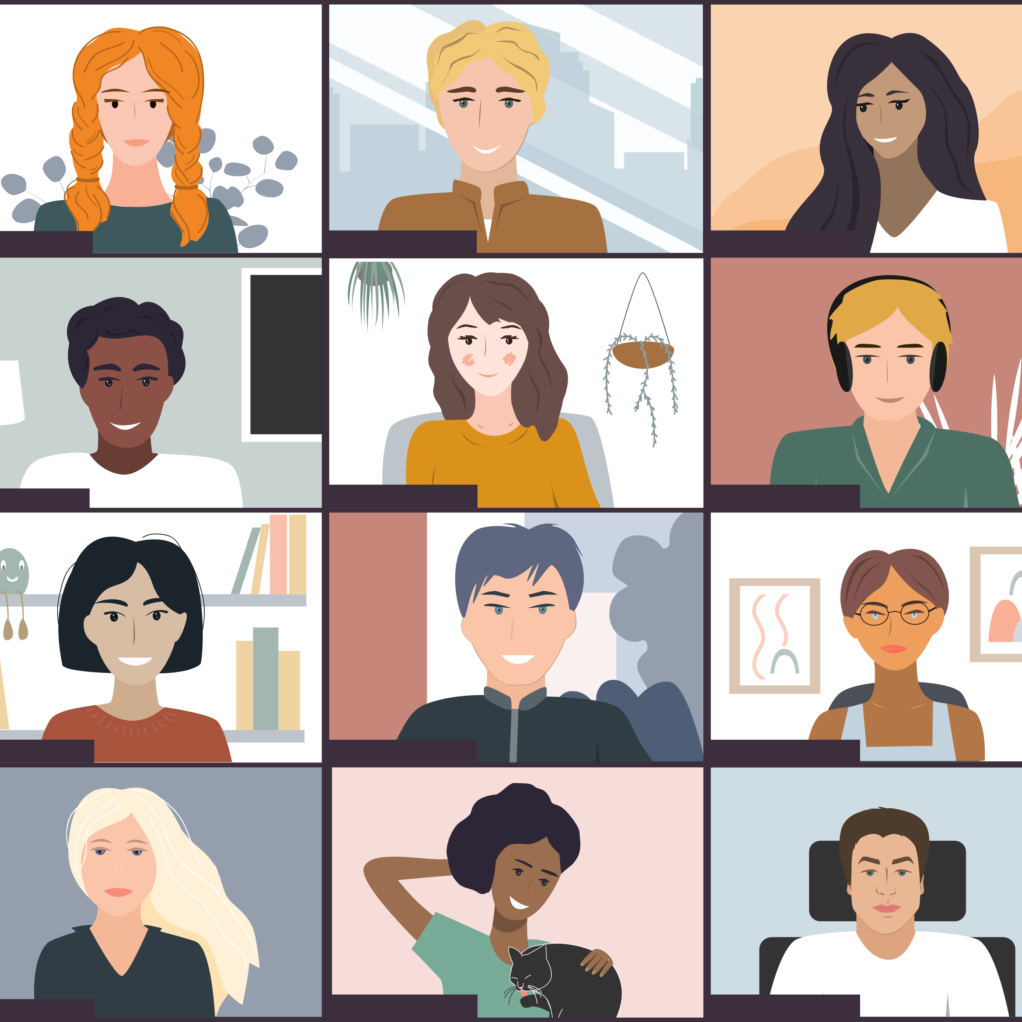
COVID-19 survivors at risk of neurological and psychiatric disorders
Theme/Lead: Paul Harrison
An Oxford Health BRC study showed 1 in 3 survivors of COVID-19 received a neurological or psychiatric diagnosis within 6 months. The risk was greater in people who had severe COVID-19, but 1 in 9 patients not requiring hospitalization, also received a diagnosis.

Blood clotting risk higher for COVID-19 than for vaccines
Theme/Lead: Paul Harrison
An Oxford Health BRC study reported that the risk of the rare blood clotting known as cerebral venous thrombosis (CVT) following COVID-19 infection is around 100 times greater than normal, several times higher than it is post-vaccination or following influenza.
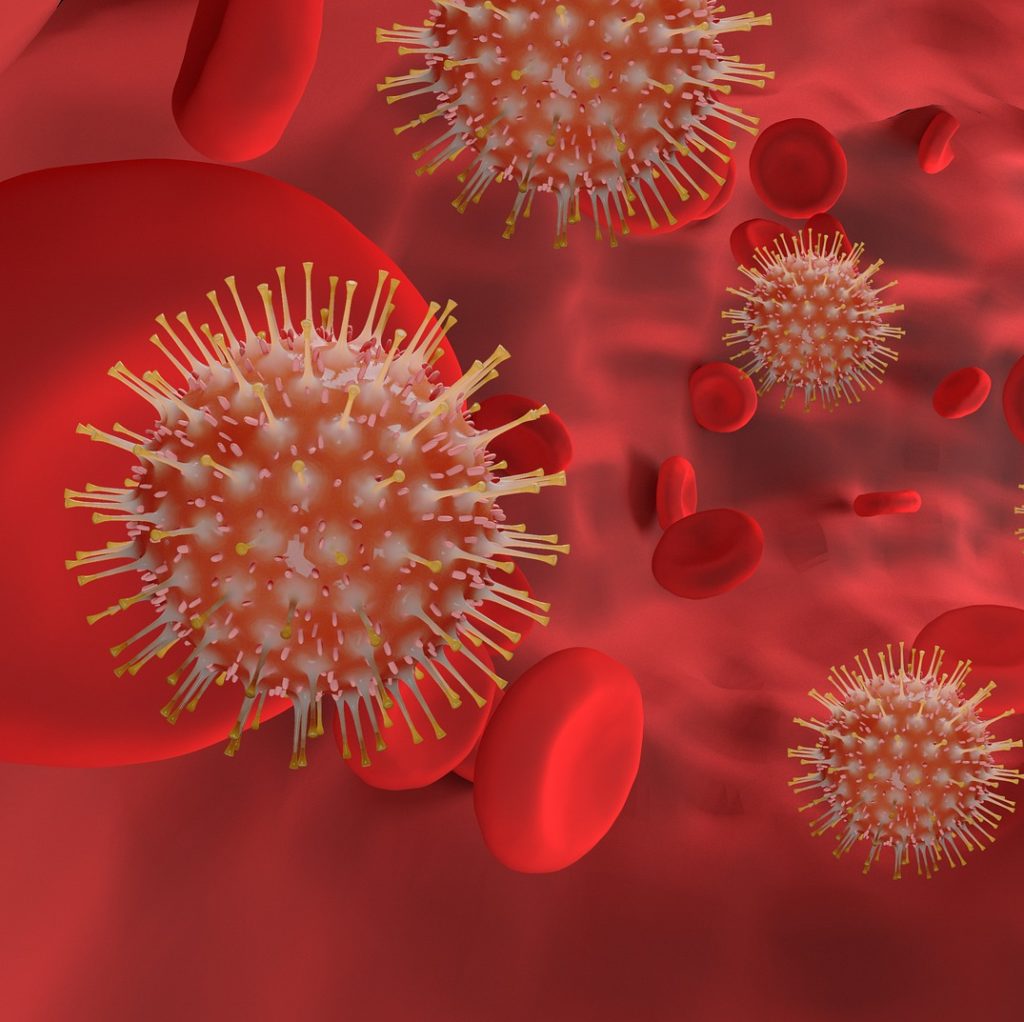
Transatlantic mental health partnership
Theme/Lead: Andrea Cipriani
A transatlantic partnership between Oxford Health NHS Foundation Trust, the University of Oxford, the University of Toronto and the Centre for Addiction and Mental Health (CAMH) in Toronto was formalised to enhance existing relationships between the universities and the two healthcare providers. The partnership will enable the development of key structures to facilitate collaboration and help realise the benefits of the complementary capabilities of the participating organisations.

BMJ blog: vaccine priority
Theme/Lead: Andrea Cipriani
A blog in thebmjopinion by mental health clinicians and researchers at Oxford Health BRC discussed COVID-19 vaccinations and where people with mental health difficulties lie within the order of priority.

A third of UK population vaccine hesitant
Theme/Lead: Dan Freeman
A comprehensive study of COVID-19 vaccine hesitancy showed a majority willing to be vaccinated but a substantial minority concerned. Oxford Health BRC Researchers surveyed a representative group of 5,114 UK adults about an approved COVID-19 vaccine for the NHS. Results indicated that 72% were willing to be vaccinated, 16% were very unsure, and 12% were strongly hesitant.

Opt-out approach to research benefits patients and staff
Theme/Lead:
A study undertaken by an interdisciplinary team at Oxford Health NHS Foundation Trust and the Oxford Health Biomedical Research Centre, showed that an ‘opt-out’ approach to research recruitment could benefit both clinical research and patient care.

Link between COVID-19 and psychiatric diagnosis
Theme/Lead: Paul Harrison
Researchers from Oxford Health BRC reported the first large-scale evidence that COVID-19 survivors are at an increased risk of psychiatric disorders. The study, published in The Lancet Psychiatry, used the TriNetX electronic health records of 69 million people in the USA including over 62,000 cases of COVID-19 and received widespread international media coverage.

Brain Health Centre opens
Theme/Lead: Clare Mackay
The Oxford Brain Health Centre (BHC) opened its doors to patients for the first time in the midst of the pandemic. Developed with the involvement of members of the public with lived experience of memory problems, the centre is a combined clinical and research service. By embedding research in the NHS service, the Centre aims to help prepare the health system for the future of dementia treatment and prevention. This innovative and ambitious approach could become a model that can be adopted throughout the NHS.
PHOSP-COVID
Theme/Lead: John Geddes / Paul Harrison
Oxford Health BRC investigators took a lead role in PHOSP-COVID – a major UK research study which will investigate the long-term health impacts of COVID-19 on hospitalised patients. The Oxford Health team have provided expertise in mental health and neurological problems following COVID-19 infection.

SHAPE - Supporting Hospital and Paramedic Employees during and after COVID
Theme/Lead: Jen Wild
The SHAPE programme for healthcare workers was launched to support hospital and paramedic employees during and after COVID. The programme has provided support to 200 healthcare workers to date.
Evidence based guidance for mental health during the pandemic
Theme/Lead: Andrea Cipriani
Researchers from the Oxford Precision Psychiatry Lab responded to COVID-19 by creating vital evidence-based guidance for patients and clinicians managing mental health conditions during the pandemic. Frequently updated, this guidance summarises the best available clinical guidelines about key COVID-19 questions that are faced by frontline mental health professionals every day.
Conspiracy theories and mistrust of government
Theme/Lead: Dan Freeman
A study funded by Oxford Health BRC and published in the journal Psychological Medicine, indicated that a disconcertingly high number of adults in England did not agree with the scientific and governmental consensus on the the coronavirus pandemic and that people who hold coronavirus conspiracy beliefs are less likely to comply with social distancing guidelines or take-up future vaccines.

New guidance and resources to help patients cope with trauma after intensive care
Theme/Lead: Precision Psychological Therapies
Oxford mental health researchers published new guidelines and free resources for treating patients experiencing Post-Traumatic Stress Disorder (PTSD) following admission to an Intensive Care Unit (ICU) during the COVID-19 pandemic.

Genetic risk factors for mental illness affect how children’s brains are wired up
Theme/Lead: Paul Harrison
BRC research published in Molecular Psychiatry, shed light on the role of genetics in mental illness, suggesting that genes influence the way children’s brains are ‘wired up’. This difference in nerve connections within the brain serves as a ‘vulnerability network’ for later developing mental illness.

Guidance for remote delivery of psychological therapies published
Theme/Lead: Anke Ehlers
The COVID-19 pandemic made it necessary to deliver psychological therapies remotely. Oxford Centre for Anxiety Disorders (OxCADAT) delivered NHS England workshops and therapist guidance for delivering psychological therapies for anxiety disorders, posttraumatic stress disorder and traumatic grief remotely and materials published on the free OxCADAT resources website.

Co-SPACE study launched
Theme/Lead: Cathy Creswell
The Co-SPACE study launched shortly after the beginning of the first UK lockdown. It was designed to track children and young people’s mental health throughout the COVID-19 crisis and identify the advice, support and help needed to protect their mental health. The study has gone on to produce multiple reports on the needs and experiences of children and families during the pandemic. It has received widespread media attention and been instrumental in policy making.
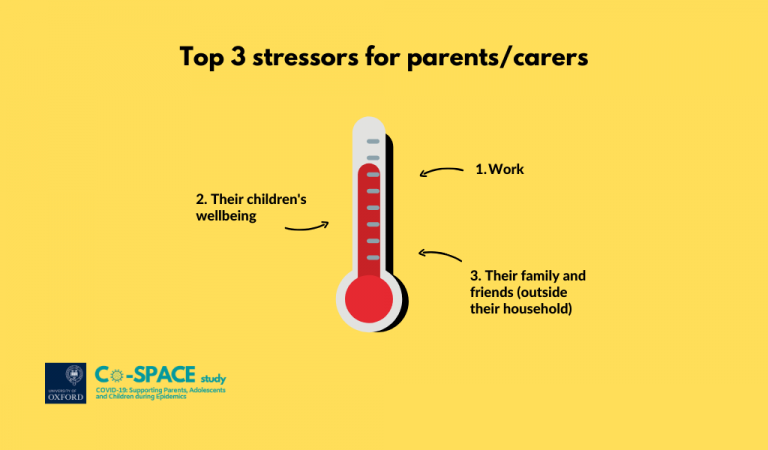
New photography exhibition showcases groundbreaking research
Theme/Lead:
Oxford Health BRC took part in an exhibition showcasing groundbreaking NIHR research has been launched in Oxford. ‘The Body Unlocked: how research is changing lives’ is an ongoing exhibition which features life-sized photographs of people who have taken part in studies, as well as researchers at work and microscopic images of cells and bacteria.

Link between calcium abnormality and bipolar disorder
Theme/Lead: Paul Harrison
A systematic review led by Professor Paul Harrison showed a link between an abnormality in cellular calcium levels and bipolar disorder. The result supports the possibility that drugs which target calcium ions might be of value in treating bipolar disorder.

Oxford Precision Psychiatry Lab established
Theme/Lead: Andrea Cipriani
The Oxford Precision Psychiatry Lab is an international multidisciplinary group of researchers, clinicians (both psychiatrists and psychologists), statisticians, methodologists and students who are passionate about improving the lives of people with mental illness across the lifespan.
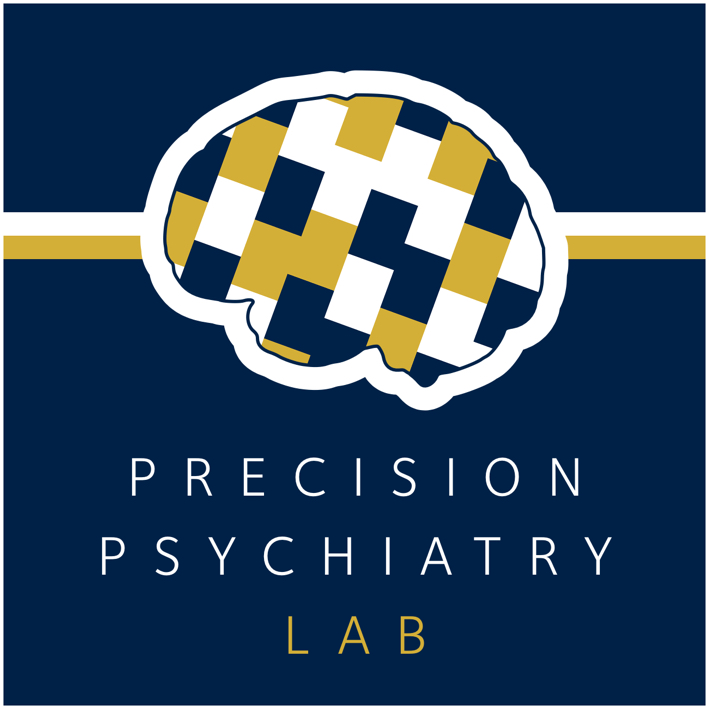
Emerging Minds Network launched
Theme/Lead:
The Emerging Minds network launched with kick off events across the UK including Belfast, Glasgow, Bristol, Cambridge, Birmingham, Newcastle, London, Swansea and Manchester attended by over 250 researchers, practitioners lived experience experts and policy makers. The Network works across sectors and disciplines to reduce the prevalence of mental health problems experienced by children and young people.
Akrivia Health launched
Theme/Lead:
Akrivia Health, a spinout from Oxford Health BRC, was developed as a sustainable way to accelerate the UK-CRIS programme. The UK-CRIS network operates a managed service for secure access to one of the world’s largest repositories of de-identified patient data relating to mental health and dementia conditions.

OHBA installs new MEG scanner system
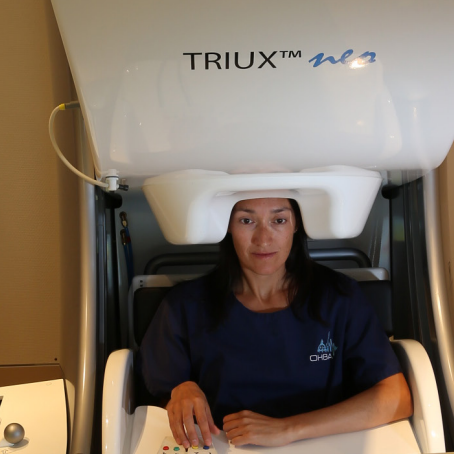
Cannabis use raises risk of depression in young adults
Theme/Lead: Andrea Cipriani
A systematic review and meta-analysis showed that cannabis use among adolescents is associated with a significant increased risk of depression and suicidality in adulthood (not anxiety). While the individual-level risk was found to be modest, the widespread use of the drug by young people makes the scale of the risk much more serious.

OxCEMM launched
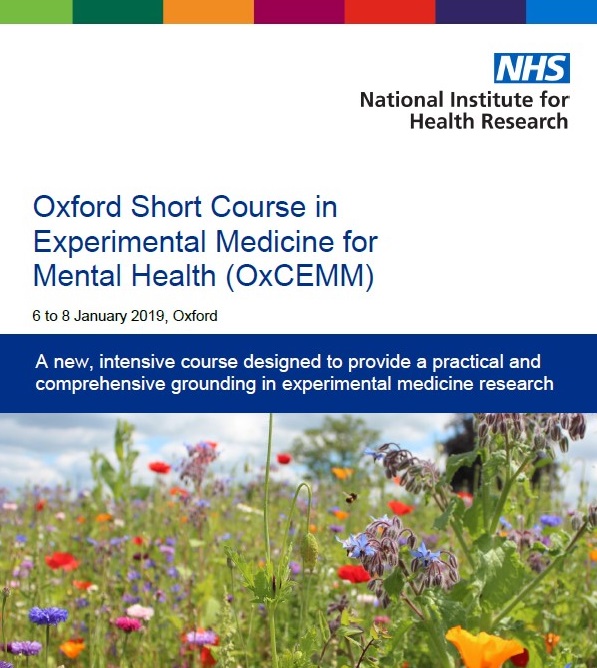
PPI strategy and animated film launched
Antidepressants more effective than placebo at treating acute depression
Theme/Lead: Andrea Cipriani
A meta-analysis of 522 trials published in The Lancet includes the largest amount of unpublished data to date, and finds that antidepressants are more effective than placebo for short-term treatment of acute depression in adults.

NIHR award to develop VR therapies for mental health
Theme/Lead: Dan Freeman
NIHR awarded £4 million to a project to enable state-of-the-art psychological therapy to be delivered via virtual reality (VR) in the NHS. The project, led by Professor Daniel Freeman brings together a team of NHS trusts, universities, a mental health charity, the Royal College of Art, and a University of Oxford spin-out company.
IAPT "no cost therapy" profiled in New York Times
Theme/Lead: Precision Psychological Therapies
The initiative, ‘Improving Access to Psychological Therapies’ (IAPT) developed by University of Oxford’s Prof David Clark was profiled in an article in the NY Times. Featuring case studies from the Oxfordshire region, the article put a spotlight on the success of IAPT, delivered via the NHS, helping thousands of people across England access talking therapies.

OxCADAT free resources for mental health disorders
Theme/Lead:
The Oxford Centre for Anxiety Disorders (OxCADAT) created a website of free resources and training videos for therapists on how to treat social anxiety disorder, panic disorder and posttraumatic stress disorder with the cognitive therapy programmes developed by the team

Oxford Health BRC on the World at One
Theme/Lead:
Oxford Health BRC theme leads, Professors Clare Mackay and Simon Lovestone, revealed details of the world’s biggest and most in-depth studies into dementia on BBC Radio 4’s World at One. Reporter, Andrew Bomford, visited the Oxford Centre for Human Brain Activity (OHBA) to hear about the Deep and Frequent Phenotyping Study and look in on an MRI scan – one of the wide range of tests that is part of the study.

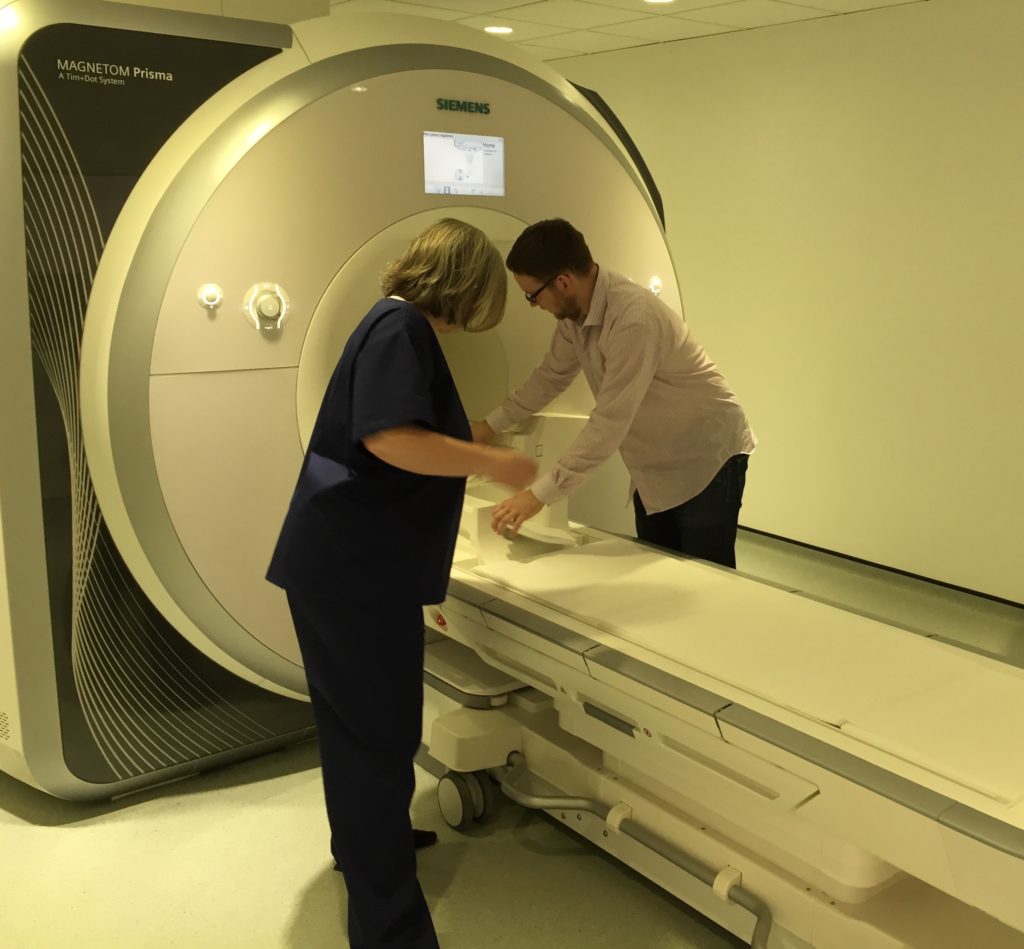
Using virtual reality to help persecutory delusions
Theme/Lead: Dan Freeman
Professor Daniel Freeman, consultant clinical psychologist at Oxford Health NHS Foundation, was awarded a major research grant to study how VR can help with persecutory delusions. Professor Freeman was awarded the grant together with his colleagues, Professors David Clark (University of Oxford), Mel Slater (University of Barcelona) and Graham Dunn (University of Manchester) and is part of the BRC precision psychological therapies theme.
Official opening of the Oxford Health BRC
Theme/Lead:
The NIHR Oxford Health Biomedical Research Centre – a partnership between the University of Oxford and Oxford Health NHS Foundation Trust – was officially opened on 31 March in spring sunshine at the University of Oxford Department of Psychiatry. Nicola Blackwood MP, Parliamentary Under Secretary of State for Public Health and Innovation, marked the occasion by unveiling a plaque.




